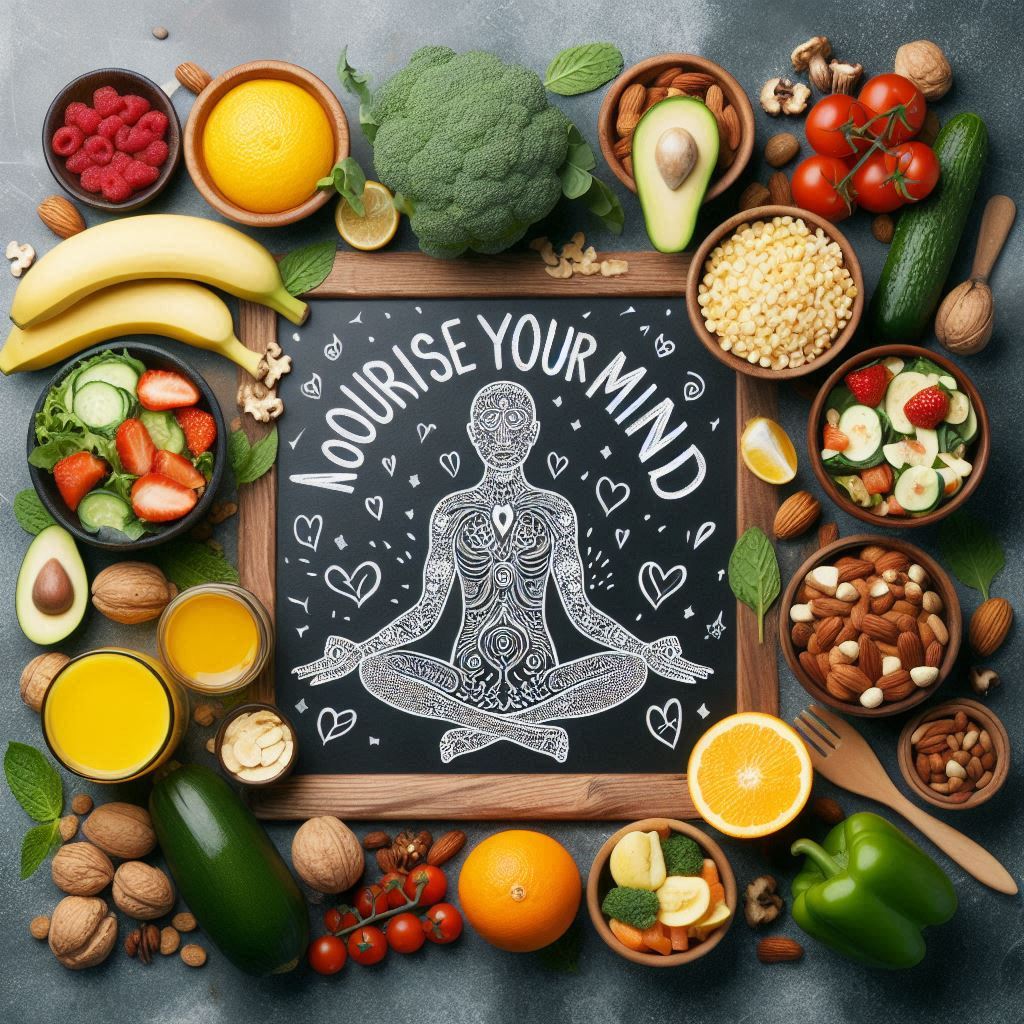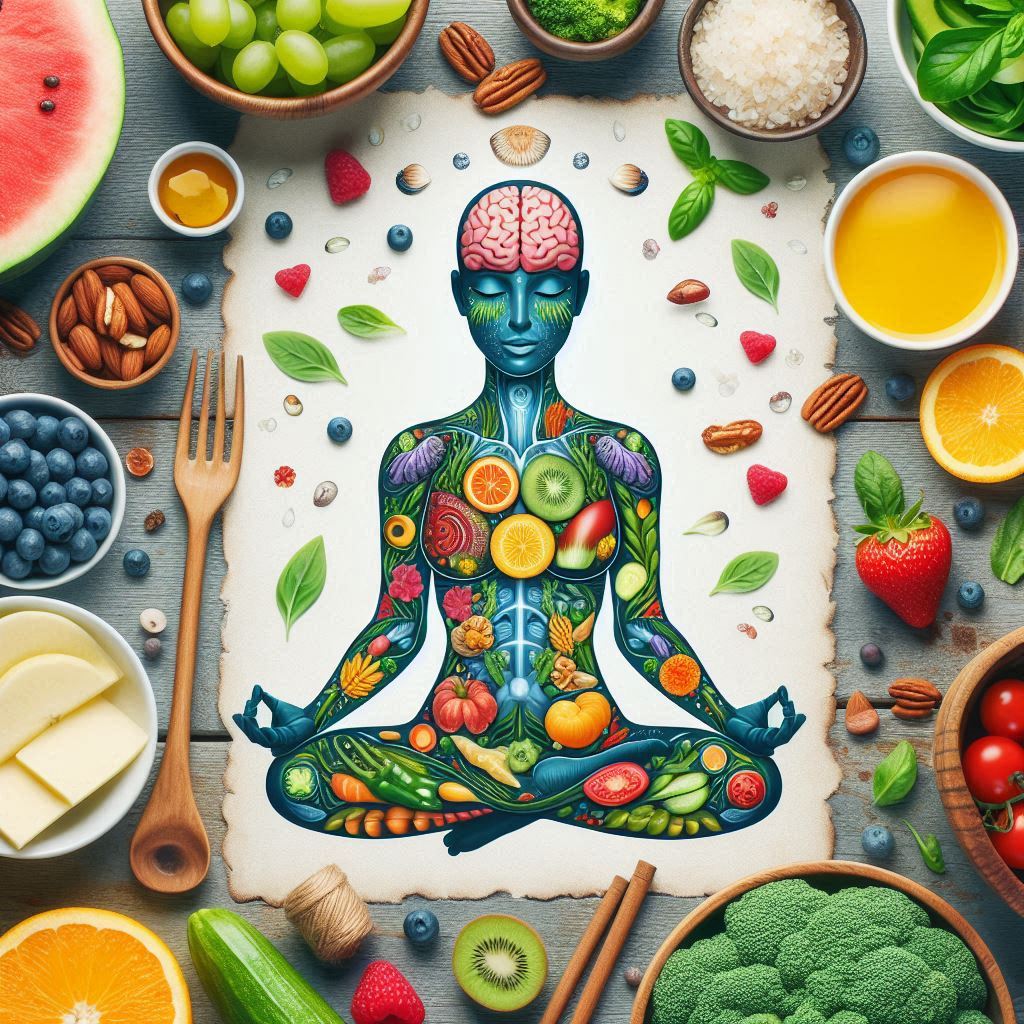
Nourish Your Mind: Meditations and Dietary Tips for Stress Relief!

In the contemporary fast-paced environment, stress has become an inescapable aspect of our daily lives. From deadlines at work to personal responsibilities, the constant pressures can lead to anxiety and overwhelm. However, taking proactive steps to manage stress through mindfulness practices and dietary choices can have a profound impact on our mental well-being. In this blog, we will explore effective meditation techniques and nourishing dietary tips that can help you cultivate a calmer, more balanced life.
Understanding the Connection Between Mind and Body
Before diving into practical techniques, it’s essential to understand the intricate connection between our minds and bodies. Stress does not just affect our mental health; it can also manifest physically, leading to symptoms like headaches, digestive issues, and fatigue. Conversely, a well-balanced diet and mindfulness practices can significantly enhance our emotional resilience and overall health.
The Role of Nutrition in Stress Management
The foods we consume play a crucial role in how our bodies respond to stress. Certain nutrients can enhance our mood, while others can contribute to feelings of anxiety. Here are some dietary tips that can help you manage stress effectively:
1. Incorporate Omega-3 Fatty Acids
Omega-3 fatty acids, commonly found in fatty fish like salmon, walnuts, and flaxseeds, are known to support brain health and reduce symptoms of anxiety and depression. Including these foods in your diet can help improve your mood and cognitive function.
2. Prioritize Whole Foods
A diet rich in whole foods—fruits, vegetables, whole grains, lean proteins, and healthy fats—provides essential vitamins and minerals that support mental health. Foods high in antioxidants, like berries and dark leafy greens, can help combat oxidative stress and inflammation in the body, leading to improved mood and stress relief.
3. Stay Hydrated
Dehydration can lead to irritability and decreased cognitive function. Drinking plenty of water throughout the day is vital for maintaining energy levels and mental clarity. Herbal teas, such as chamomile and peppermint, can also promote relaxation and aid digestion.
4. Limit Sugar and Processed Foods
While sugary snacks may provide a temporary mood boost, they often lead to energy crashes and increased feelings of anxiety. Reducing your intake of refined sugars and processed foods can help stabilize your mood and energy levels, making it easier to cope with stress.
5. Mindful Eating Practices
Practicing mindfulness during meals can enhance your relationship with food and help you tune in to your body’s hunger and fullness cues. Eating slowly, savoring each bite, and eliminating distractions can lead to a more satisfying dining experience and prevent overeating.

The Power of Meditation for Stress Relief
Meditation is a powerful tool for managing stress and fostering a sense of calm. It encourages mindfulness and helps create a space for self-reflection and emotional regulation. Here are some meditation techniques you can incorporate into your daily routine:
1. Breath Awareness Meditation
One of the simplest forms of meditation, breath awareness focuses on the natural rhythm of your breath. Find a secluded location, assume a comfortable posture, and close your eyes. Take a deep breath through your nose, allowing your belly to expand, and then exhale slowly through your mouth. As thoughts arise, acknowledge them, and gently return your focus to your breath. This practice can help ground you in the present moment and alleviate stress.
2. Guided Imagery
Guided imagery involves visualizing a peaceful scene or scenario, which can evoke feelings of relaxation. You can find audio recordings or apps that guide you through this process. Picture a serene beach, a lush forest, or any place that brings you joy. Engaging your senses in this visualization can transport you away from stressors and promote a sense of calm.
3. Body Scan Meditation
In body scan meditation, you focus on different parts of your body, promoting relaxation and awareness of physical sensations. Start from the top of your head and gradually move down to your toes, noting any tension and consciously relaxing those areas. This technique can enhance your mind-body connection and help you release accumulated stress.
4. Loving-Kindness Meditation
Loving-kindness meditation involves nurturing compassionate and loving feelings toward yourself and others. This practice can foster a sense of connection and reduce feelings of isolation, which in turn contributes to overall emotional well-being.
5. Mindfulness Meditation
Mindfulness meditation prompts you to observe your thoughts and emotions without any judgment. Sit comfortably and focus on your breath. Permit your thoughts to flow freely without any form of judgment or criticism. The goal is not to suppress thoughts but to acknowledge them and return to the breath. This practice can help you develop a greater awareness of your mental patterns and improve your ability to cope with stress.
Creating a Stress-Relief Routine
Incorporating both dietary changes and meditation into your daily routine can create a powerful synergy for stress relief. Here’s how you can develop a stress-relief routine:
Morning Ritual
- Start with Hydration: Begin your day with a glass of water to rehydrate your body after sleep.
- Mindful Breakfast: Prepare a wholesome breakfast that includes protein, whole grains, and fruits. Eat slowly, savoring each bite.
Midday Mindfulness
- Take a Break: Set aside a few minutes during your lunch break for a brief meditation session or a walk in nature.
- Healthy Lunch: Include omega-3 rich foods like salmon or a hearty salad packed with colorful vegetables.
Evening Reflection
- Wind Down: Create a calming evening routine that includes a herbal tea and a stress-relief meditation.
- Light Dinner: Prepare a light dinner with whole foods, avoiding heavy or processed meals before bed.
Conclusion
Nourishing your mind through dietary choices and meditation is a holistic approach to stress management. By being mindful of what you eat and incorporating meditation practices into your daily routine, you can create a resilient foundation for your mental health. Remember, it’s not about perfection but rather about making small, consistent changes that can lead to significant improvements in your overall well-being. Start today, and embrace the journey of self-care and mindfulness as you nourish both your mind and body.










